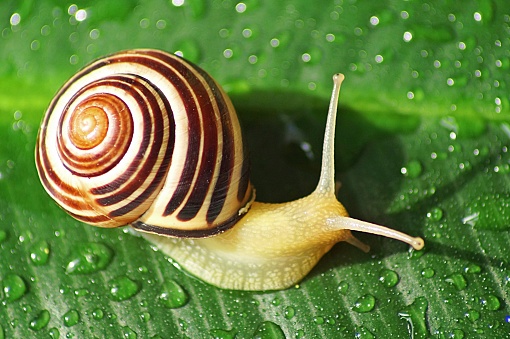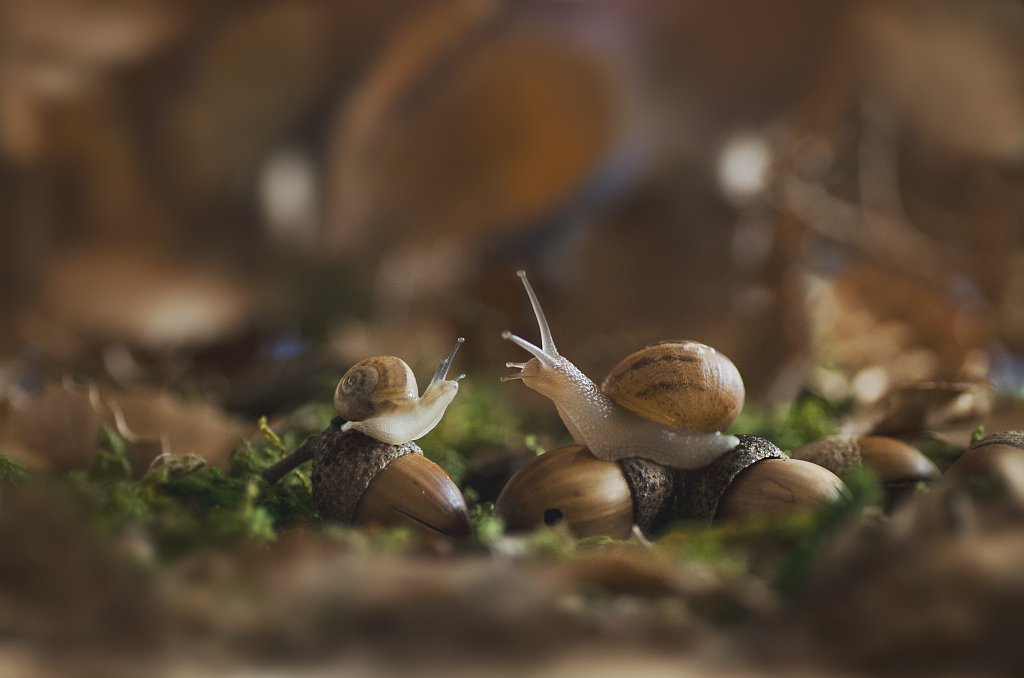The word "snail" in Chinese contains the word for ox, despite snails being quite different from oxen.
In Chinese, "wō niú" (snails) refers only to land species of the class Gastropoda, excluding numerous species of sea snails and freshwater snails in general. Snails have shells of diverse shapes and colors. The head has four tentacles, which extend out when walking and retreat into the shell when frightened.

1. Thousands of teeth
Snails feed on their lower jaws and an elastic band of thousands of tiny teeth, called a radula. The radula scrapes or grinds food particles, and the jaw cuts off larger pieces of food like leaves, which are then ground by the radula.
2. Excretion
Snails excrete near their blowholes, called stomata. They will dump feces on their bodies and eventually leave feces on the ground through their feet and mucus.
3. Shell's direction
Most snails have a shell that rotates clockwise from the center, but some "left-handed" snails have the opposite shell. According to Nature, the research team led by Masanori Abe and Reiko Kuroda at Chubu University in Kasugai, Japan, found in 2019 that snails missing the gene Lsdia1 had offspring with the rare anti-clockwise shells, suggesting that Lsdia1 is key to determining the creatures' "handedness." The snails pass on the mutated gene and shell type to subsequent generations.
4. Food preference
Snails are omnivorous animals. Young snails are mostly saprovores, mainly feeding on putrefied plants. Adult snails generally eat green plants, such as roots, stems, leaves, flowers and fruits of all kinds of plants. They also eat a variety of waste papers, pig dung and plant residues. When starving, they will also eat each other.

Happy 'Niu' Year
February 12 marks the beginning of the Year of the Ox. Niu means "ox" in Chinese, but it can also mean "very impressive." In Chinese, the character niu is also a part of the names of animals other than the ox. In this series, CGTN goes over interesting facts about animals with the character niu in their names.
(Cover image and infographic designed by CGTN's Li Jingjie)
(If you want to contribute and have specific expertise, please contact us at nature@cgtn.com.)

